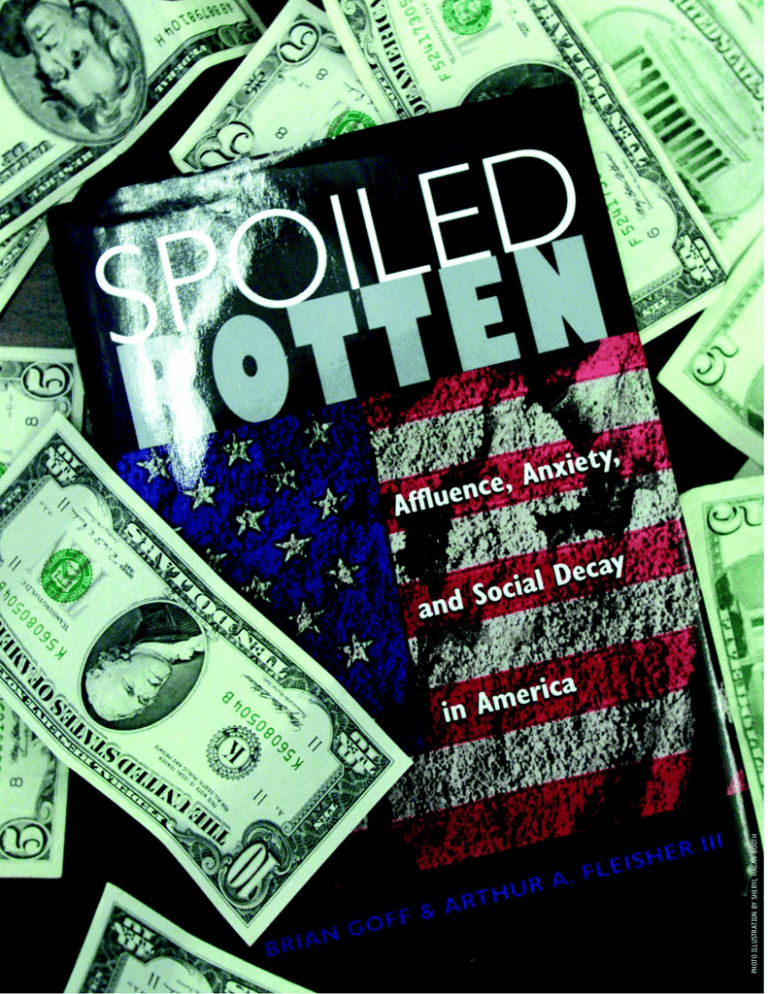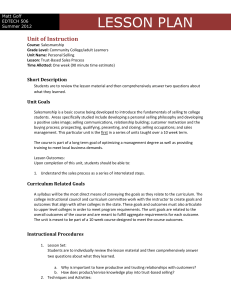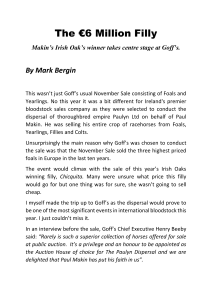18 THE WESTERN SCHOLAR PHOTO ILLUSTRATION BY SHERYL HAGAN-BOOTH
advertisement

18 PHOTO ILLUSTRATION BY SHERYL HAGAN-BOOTH THE WESTERN SCHOLAR GENERATION E CESS BY BOB SKIPPER MANY OF US HAVE HEARD THE STORIES FROM PARENTS OR GRANDPARENTS: “WHEN I WAS YOUR AGE, I HAD TO WALK FIVE MILES IN THREE FEET OF SNOW TO GET TO SCHOOL EVERY DAY.” THEY WERE QUICK TO SAY HOW MUCH BETTER OFF THE CURRENT GENERATION IS COMPARED TO WHAT THEY HAD GROWING UP. But are we really better off? In the early 1990s, Brian Goff, an economics professor at Western Kentucky University, began to notice a trend in the popular press: “I kept seeing where people were saying they were worse off than their parents,” he said. Reports in newspapers and opinion polls touted the belief that stagnating wages and personal incomes were causing flat living standards for the masses. As Dr. Goff began thinking back to his own childhood, he said he noticed “something’s not stacking up here.” Families were living in nicer and larger houses, owning nicer and more cars, and taking nicer vacations than he or his friends had while growing up. “The more research I conducted, the more I found a gap between this perception and reality,” he said. Thus was born “Spoiled Rotten: Affluence, Anxiety, and Social Decay in America,” which Goff co-authored with Arthur A. Fleisher III at Metro State University in Denver. Both authors have doctorates in economics from George Mason University while Goff has a bachelor’s degree in economics from Western. “Maybe we’re not only misperceiving our living standards, but maybe this is a reflection of, as the title of the book suggests, being spoiled,” Dr. Goff said. “Maybe we have so much that we don’t even recognize what we “Maybe we have so much that we don’t even recognize what we have, and maybe that has had effects in other ways, too.” have, and maybe that has had effects in other ways, too.” In the book’s preface, Goff and Fleisher note that the combination of flat living standards for the masses and rising standards for a privileged few has been blamed for a variety of social ills. “The pessimism about American living standards struck us as odd,” they wrote. “When looking at the things that average people own and use, drastic improvements over the 1960s and 1970s seemed apparent.” Their research led them to develop the theses that the fantastic growth in material well-being for most U.S. residents since 1970 “is responsible for many of the negative social consequences usually attributed to economic stagnation and disparity in wealth.” The book underscores how the “swell of material living standards for most Americans has muddled and altered both thinking and behavior,” Dr. Goff wrote. This growing affluence and the resulting benefits “have reached such enormous levels that the United States has become a nation full of poorly motivated, self-obsessed individuals who have enough money and leisure time to create imaginary problems, indulge fanciful whims, and outsource important responsibilities – in short, to behave like overindulged children,” they wrote. Dr. Goff said the first half of the book is a refutation of SPRING 2001 19 20 THE WESTERN SCHOLAR Dr. Goff describes his two main research fields as “political economy” and the “economics of sports.” He has authored or coauthored four other books and about thirty journal articles, covering a variety of topics in these fields including federal budget deficits, federal regulation, Federal Reserve Board decision making, the designated hitter rule in Major League Baseball, and the NCAA. Among these works, Dr. Goff says that two have had the biggest impact. One is “The National Collegiate Athletic Association: A Study in Cartel Behavior,” published in 1992 by the University of Chicago Press and coauthored with Fleisher and Robert Tollison of the University of Mississippi. He noted, “The 7th Circuit Court of Appeals cited it in an opinion, it’s used in several sports economics classes across the country, and I’ve been interviewed by several newspaper writers over the years because of it.” The other is a journal article he coauthored with Tollison and another University of Mississippi professor showing .that the adoption of the DH rule in the American League led to more hit batters than in the National League. “Business Week summarized our findings, and later reported on our communication with two groups who commented on our article. Articles like that may not change the world, but they’re fun.” His current project again ventures into the sports world. He, Tollison, and Robert McCormick of Clemson University are investigating the progression of racial integration among teams in Major League Baseball and Atlantic Coast Conference basketball. PHOTO BY SHERYL HAGAN-BOOTH the notion that living standards have suffered. Social commentators from across the political spectrum have underplayed the tremendous economic growth of the past 30 years, he said, and their conclusions have shared a common problem: “a misunderstanding of the role that rapidly improving living standards has played in contributing to these social problems.” Drs. Goff and Fleisher said they looked for grassroots-level explanations. “The problems we attribute to the growth in wealth include employment issues such as job selection and security, family issues such as illegitimacy and divorce, rising crime trends and tepid punishment, educational issues such as sluggish SAT scores, and others,” they wrote. “Further, we discuss how wealth has allowed Americans to create problems out of thin air or turn molehills into mountains.” Higher living standards are not all bad, and the book also outlines the many positive social outcomes that have resulted. “In fact, the many benefits of wealth led to our analysis of the final question posed in the book: What can we do about wealth’s negative effects withDr. Brian Goff out destroying its positive impacts?” they wrote. The book was the result of three years’ work and brought together “a potpourri of different interests that I’ve had,” Dr. Goff said. “This was kind of a crossover book, not a straight academic book,” he said. “It didn’t make me famous, but in a lot of ways, it was one of the most enjoyable projects I’ve done.”




